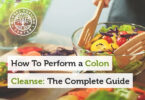By Sayer Ji
Contributing writer for Wake Up World
A recent Reuters’ article opened with the following stunning sentence:
“Long-term high-dose use of painkillers such as ibuprofen or diclofenac is ‘equally hazardous’ in terms of heart attack risk as use of the drug Vioxx, which was withdrawn due to its potential dangers, researchers said.”
The 2004 Vioxx recall, as you may remember, was spurred by the nearly 30,000 excess cases of heart attacks and sudden cardiac deaths caused by the drug between 1999-2003. Despite the fact that scientific research had accumulated as early as 2000 linking Vioxx to increased heart attacks and strokes, the drug’s manufacturer Merck, and the FDA, remained silent as the death toll steadily increased.
The Reuters report focused on new research published in Lancet indicating the risk of heart attack increases as much as a third and the risk of heart failure doubles among heavier users of NSAID drugs.
[pro_ad_display_adzone id=”110028″]
INFLAMED: Our Default Bodily State
Why are so many folks taking NSAID drugs like ibuprofen anyway?
Pain and unhealthy levels of inflammation are fast becoming default bodily states in the industrialized world. While in most cases we can adjust the underlying pro-inflammatory conditions by altering our diet, and reducing stress and environmental chemical exposures, these approaches take time, discipline and energy, and sometimes we just want the pain to stop now. In those often compulsive moments we find ourselves popping an over-the-counter pill to kill the pain.
The problem with this approach is that, if we do it often enough, we may kill ourselves along with the pain…
Ibuprofen really is a perfect example of this. As mentioned above, this petrochemical-derivative has been linked to significantly increased risk of heart attack and increased cardiac and all-cause mortality (when combined with aspirin), with over two dozen serious adverse health effects, including:
- Anemia[1]
- DNA Damage[2]
- Hearing Loss[3]
- Hypertension[4]
- Influenza Mortality[5]
- Miscarriage[6]
Ibuprofen is, in fact, not unique in elevating cardiovascular disease risk and/or mortality. The entire category of non-steroidal anti-inflammatory drugs (NSAIDs) appears to have this under-recognized dark side; cardiovascular disease and cardiac mortality score highest on the list of over 100 unintended adverse health effects associated with their use. See also our analysis of the rarely acknowledged dark side to aspirin: The Evidence Against Aspirin And For Natural Alternatives.
So, what does one do? Pain is pain. Whether it happens to you, or you witness it in another (which can be worse), finding relief is a top priority.
Research on Natural Alternatives To Ibuprofen
Here is some evidence-based research on alternatives to ibuprofen, sourced from the National Library of Medicine:
- Ginger – A 2009 study found that ginger capsules (250 mg, four times daily) were as effective as the drugs mefenamic acid and ibuprofen for relieving pain in women associated with their menstrual cycle (primary dysmenorrhea). [7]
- Topical Arnica – A 2007 human study found that topical treatment with arnica was as effective as ibuprofen for hand osteoarthritis, but with lower incidence of side effects. [8]
- Combination: Astaxanthin, Ginkgo biloba and Vitamin C – A 2011 animal study found this combination to be equal to or better than ibuprofen for reducing asthma-associated respiratory inflammation. [9]
- Chinese Skullcap (baicalin) – A 2003 animal study found that a compound in Chinese skullcap known as baicalin was equipotent to ibuprofen in reducing pain. [10]
- Omega-3 fatty acids: A 2006 human study found that omega-3 fatty acids (between 1200-2400 mg daily) were as effective as ibuprofen in reducing arthritis pain, but with the added benefit of having less side effects. [11]
- Panax Ginseng – A 2008 animal study found that panax ginseng had analgesic and anti-inflammatory activity similar to ibuprofen, indicating its possible anti-rheumatoid arthritis properties. [12]
- St. John’s Wort – A 2004 animal study found that St. John’s wort was twice as effective as ibuprofen as a pain-killer. [13]
- Anthrocyanins from Sweet Cherries & Raspberries – A 2001 study cell study found that anthrocyanins extracted from raspberries and sweet cherries were as effective as ibuprofen and naproxen at suppressing the inflammation-associated enzyme known as cyclooxygenase-1 and 2. [14]
- Holy Basil – A 2000 study found that holy basil contains compounds with anti-inflammatory activity comparable to ibuprofen, naproxen and aspirin. [15]
- Olive Oil (oleocanthal) – a compound found within olive oil known as oleocanthal has been shown to have anti-inflammatory properties similar to ibuprofen. [16]
 There are, of course, hundreds of additional substances which have been studied for their pain-killing and/or anti-inflammatory effects, and there are also aromatherapeutic approaches that do not require the ingestion of anything at all, but there is also a danger here. When we think of taking an alternative pain-killer to ibuprofen, we are still thinking within the palliative, allopathic medical model: suppress the symptom, and go on about our business. It would behoove us to look deeper into what is causing our pain. And when possible, remove the cause(s). And that often requires a dramatic dietary shift away from pro-inflammatory foods, many of which most Westerners still consider absolutely delightful, e.g. wheat, dairy, nightshade vegetables and even wheat-free grains, etc.
There are, of course, hundreds of additional substances which have been studied for their pain-killing and/or anti-inflammatory effects, and there are also aromatherapeutic approaches that do not require the ingestion of anything at all, but there is also a danger here. When we think of taking an alternative pain-killer to ibuprofen, we are still thinking within the palliative, allopathic medical model: suppress the symptom, and go on about our business. It would behoove us to look deeper into what is causing our pain. And when possible, remove the cause(s). And that often requires a dramatic dietary shift away from pro-inflammatory foods, many of which most Westerners still consider absolutely delightful, e.g. wheat, dairy, nightshade vegetables and even wheat-free grains, etc.
Article sources:
- [1] Direct cytotoxicity of non-steroidal anti-inflammatory drugs in acidic media: model study on human erythrocytes with DIDS-inhibited anion exchanger. Pharmazie. 2002 Dec;57(12):848-51. PMID: 12561250
- [2] Genotoxicity of ibuprofen in mouse bone marrow cells in vivo. Drug Chem Toxicol. 2012 Jan 27. Epub 2012 Jan 27. PMID: 22283434
- [3] Analgesic use and the risk of hearing loss in men. Am J Med. 2010 Mar;123(3):231-7. PMID: 20193831
- [4] Effect on blood pressure of lumiracoxib versus ibuprofen in patients with osteoarthritis and controlled hypertension: a randomized trial. J Hypertens. 2008 Aug;26(8):1695-702. PMID: 18622250
- [5] The effect on mortality of antipyretics in the treatment of influenza infection: systematic review and meta-analysis. J R Soc Med. 2010 Oct;103(10):403-11. PMID: 20929891
- [6] Taking non-aspirin NSAIDs in early pregnancy doubles risk of miscarriage, study shows. BMJ. 2011 ;343:d5769. Epub 2011 Sep 9. PMID: 21908536
- [7] Comparison of effects of ginger, mefenamic acid, and ibuprofen on pain in women with primary dysmenorrhea. J Altern Complement Med. 2009 Feb 13. PMID: 19216660
- [8] Choosing between NSAID and arnica for topical treatment of hand osteoarthritis in a randomised, double-blind study. Rheumatol Int. 2007 Apr;27(6):585-91. Epub 2007 Feb 22. PMID: 17318618
- [9] Summative interaction between astaxanthin, Ginkgo biloba extract (EGb761) and vitamin C in suppression of respiratory inflammation: a comparison with ibuprofen. Phytother Res. 2011 Jan;25(1):128-36. PMID: 20632299
- [10] The antiinflammatory and analgesic effects of baicalin in carrageenan-evoked thermal hyperalgesia. Anesth Analg. 2003 Dec;97(6):1724-9. PMID: 14633550
- [11] Omega-3 fatty acids (fish oil) as an anti-inflammatory: an alternative to nonsteroidal anti-inflammatory drugs for discogenic pain. Surg Neurol. 2006 Apr;65(4):326-31. PMID: 16531187
- [12] Potential analgesic and anti-inflammatory activities of Panax ginseng head butanolic fraction in animals. Food Chem Toxicol. 2008 Dec;46(12):3749-52. Epub 2008 Oct 1. PMID: 18930781
- [13] Antinociceptive activity of methanolic extracts of St. John’s Wort (Hypericum perforatum) preparation. Pak J Pharm Sci. 2004 Jul;17(2):13-9. PMID: 16414593
- [14] Cyclooxygenase inhibitory and antioxidant cyanidin glycosides in cherries and berries. Phytomedicine. 2001 Sep;8(5):362-9. PMID: 11695879
- [15] Antioxidant and cyclooxygenase inhibitory phenolic compounds from Ocimum sanctum Linn. Phytomedicine. 2000 Mar;7(1):7-13. PMID: 10782484
- [16] Molecular mechanisms of inflammation. Anti-inflammatory benefits of virgin olive oil and the phenolic compound oleocanthal. Curr Pharm Des. 2011 ;17(8):754-68. PMID: 21443487
About the author:
Sayer Ji is the founder of Greenmedinfo.com, a reviewer at the International Journal of Human Nutrition and Functional Medicine, Co-founder and CEO of Systome Biomed, Vice Chairman of the Board of the National Health Federation, and Steering Committee Member of the Global Non-GMO Foundation.
For more, visit GreenMedInfo.com and Facebook.com/GreenMedInfo, or sign up for GreenMedInfo’s free e-Newsletter.
Recommended articles by Sayer Ji:
- Black Seed May Treat Hypothyroidism (Hashimoto’s Disease), Clinical Trial Reveals
- Wi-Fi Devices Increase Mercury Release From Dental Amalgams
- Participating in Drum Circles Improves Health and Quality of Life in Parkinson’s Patients (Study)
- Acupuncture Beats Injected Morphine for Pain: Groundbreaking Study
- Mammography Is Harmful and Should Be Abandoned, Scientific Review Concludes
- “Killer Germs” Obliterated by Medicinal Smoke Smudging, Study Reveals
- 6 Evidence-Based Ways Drumming Heals Body, Mind and Soul
- Turmeric’s ‘Smart Kill’ Properties Put Chemo & Radiation To Shame
- Beet Juice Boosts Cognitive Function In One Dose
- 13 Evidence-Based Medicinal Properties of Coconut Oil
- Group Drumming Better Than Prozac, Study Suggests
- 25 Cancer Stem-Cell Killing Foods That Are Smarter Than Chemo and Radiation
- Splenda Suppresses Thyroid Function, Promotes Weight Gain
[pro_ad_display_adzone id=”110027″]








